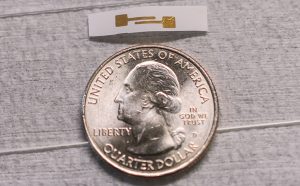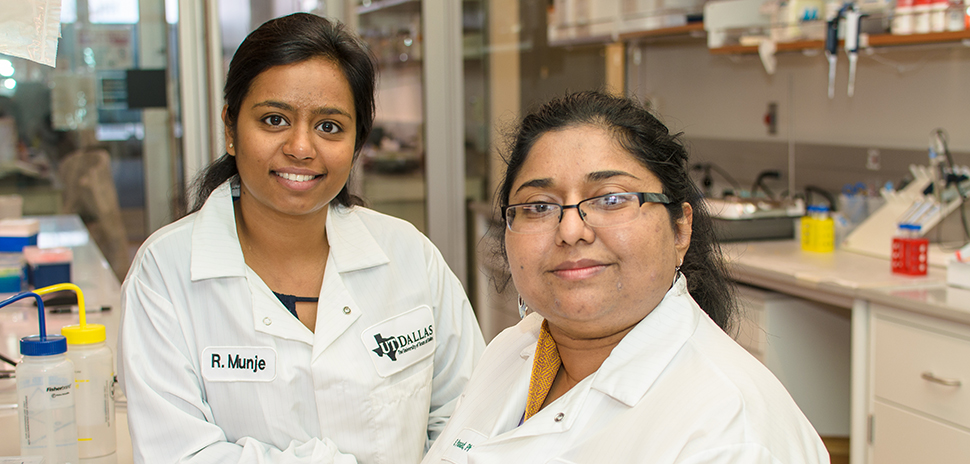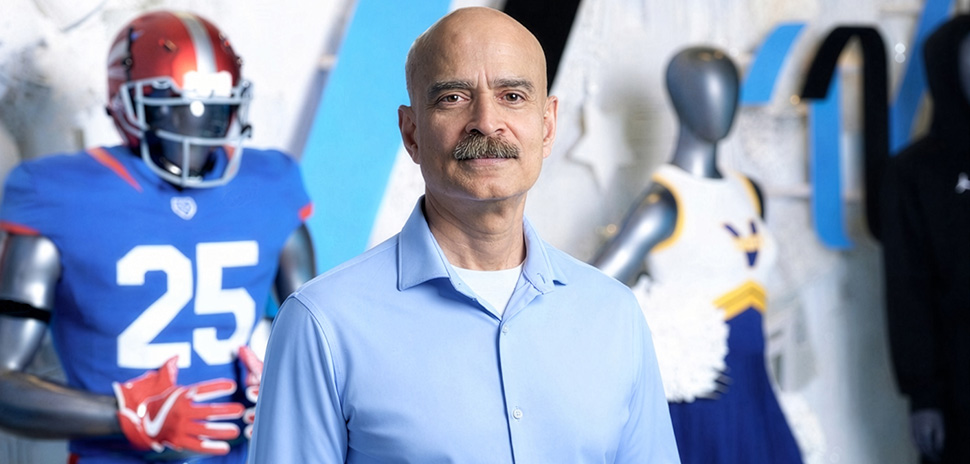Dr. Shalini Prasad and her team at The University of Texas at Dallas have created a wearable sensor that measures glucose through human sweat.

The glucose test strip is no wider than a quarter. [Photo Courtesy UT Dallas]
While the common blood glucose monitors require a small amount of blood to determine glucose levels, the textile-based sensor created by UT Dallas researchers instead works with less than a microliter of sweat.
“Fitness trackers that monitor heart rate and step count are very popular, but wearable, non-invasive biosensors would be extremely beneficial for managing diseases,” said Prasad, professor of bioengineering at UT Dallas, in a release.
To receive reliable glucose measurements, researchers designed the device to ensure low amounts of sweat could be used to “generate a strong enough signal,” as well as combat factors such as pH swings and varying acidity levels in sweat.
“Our modifications allow this material to entrap glucose oxidase molecules, which effectively amplifies the signal,” Prasad said. “We did it this way because we are thinking about possible commercialization — to make these, we need a fabrication process that is not complex.”
Delivering what’s new and next in Dallas-Fort Worth innovation, every day. Get the Dallas Innovates e-newsletter.





























